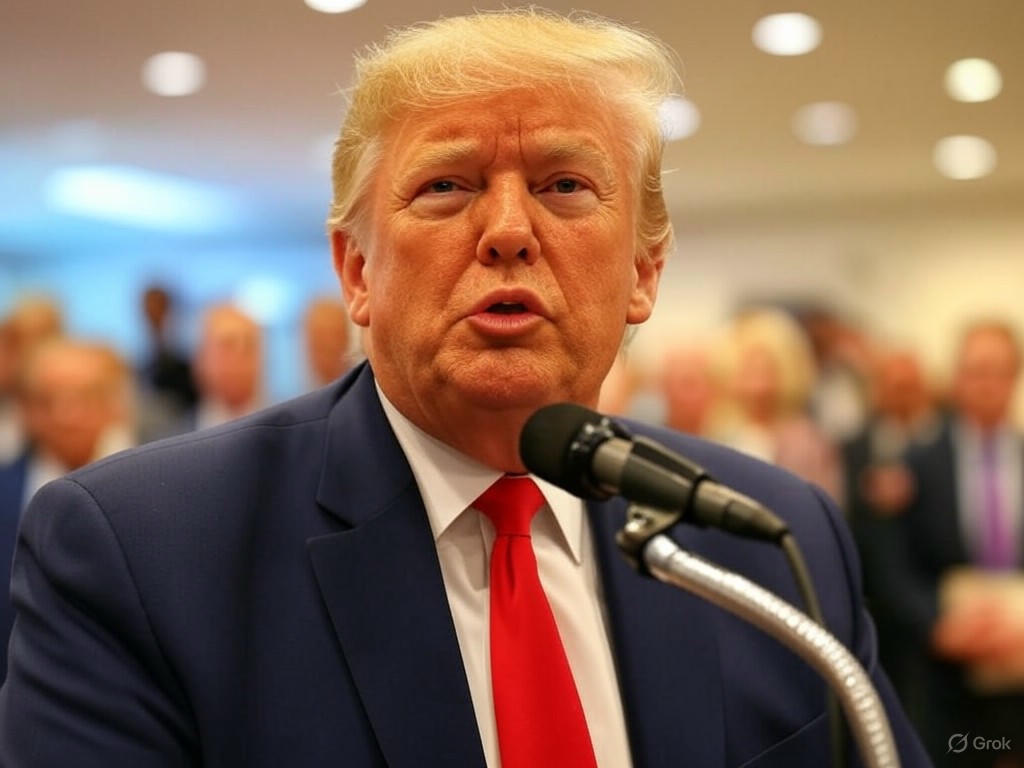Trump Urges Bold Rate Cut Amid Economic Strength
In a surprising move, President Donald Trump has publicly called for a significant interest rate reduction, pressing Federal Reserve Chairman Jerome Powell to slash rates by a full percentage point. This demand comes on the heels of a robust jobs report that showcased a thriving economy with low unemployment and steady wage growth. Trump’s insistence on a dramatic cut has sparked intense debate among economists and policymakers, who question the necessity of such a bold move during a period of apparent economic stability.
The latest employment data painted a picture of resilience, with thousands of new jobs added across various sectors. This strength suggests that the economy may not require aggressive monetary easing at this juncture. However, Trump argues that a substantial rate cut could act as a preemptive strike against potential inflationary pressures. He reportedly cautioned Powell during a recent discussion that failing to act now might force the Fed to hike rates later if inflation surges unexpectedly. This perspective reflects Trump’s long-standing belief that lower interest rates fuel business investment and consumer spending, driving further growth.
Critics, however, warn that such a steep reduction could overheat an already strong economy. Some financial analysts point out that cutting rates by a full point risks devaluing the dollar and inflating asset bubbles, particularly in real estate and stock markets. Others argue that the Federal Reserve must maintain its independence from political influence, emphasizing that monetary policy should be guided by data, not presidential directives. Powell, who has often faced scrutiny from Trump for his cautious approach, now finds himself at the center of a high-stakes decision. The Fed Chair has previously stressed the importance of balancing inflation control with economic expansion, a stance that may clash with Trump’s aggressive push for lower rates.
Market reactions to Trump’s comments have been mixed. While some investors welcome the prospect of cheaper borrowing costs, others express concern over the uncertainty surrounding the Fed’s next steps. Bond yields have fluctuated as traders speculate on whether Powell will yield to pressure or hold firm to a more measured policy. Businesses, too, are weighing the potential benefits of lower interest rates against the risks of an overstimulated economy that could lead to tighter conditions down the line.
As this economic tug-of-war unfolds, the spotlight remains on the Federal Reserve’s upcoming decisions. Will Powell heed Trump’s call for a dramatic rate cut, or will he prioritize long-term stability over short-term political demands? The outcome could set a precedent for how much influence a sitting president wields over independent institutions like the Fed. For now, the business world watches closely, aware that the ripples of this debate could shape financial landscapes for years to come. One thing is clear: the intersection of politics and economics remains as contentious as ever, with high stakes for American workers, investors, and policymakers alike.


